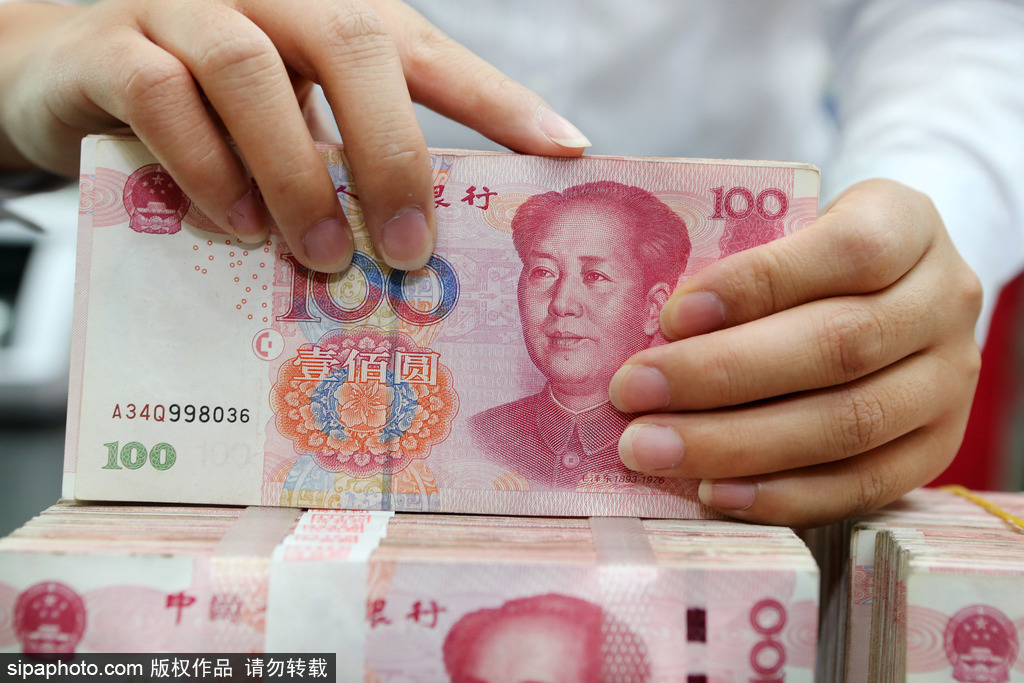New policies will give small firms a leg up


Banks, insurers to help reduce loan and other costs, offer free consulting service
China's banking and insurance sectors will forgo part of their profits this year to stabilize the real economy by lowering lending rates, comprehensive financing costs and insurance premiums for companies, and they will offer some free consulting services to small businesses, said Xiao Yuanqi, chief risk officer of China's top banking and insurance regulator.
To help various firms get through tough times, the central government will push financial institutions to sacrifice 1.5 trillion yuan ($212.1 billion) in profits this year through a series of policies such as guiding lending rates lower, deferring loan repayments for micro, small and medium-sized enterprises, and granting small businesses collateral-free loans, according to the State Council, China's cabinet.
Companies' financing costs have dropped significantly this year. In the first five months, the average lending rate for small businesses with a credit line of up to 10 million yuan was 6.03 percent, 0.67 percentage point lower than in all of last year. The average lending rate for the manufacturing sector was 4.32 percent, 0.46 percentage point less than the beginning of this year, said Ye Yanfei, an inspector in the Policy Research Bureau of the China Banking and Insurance Regulatory Commission.
Banks have given better support to small and micro businesses, using cheap funds freed up by the People's Bank of China, the central bank, through monetary policy instruments including re-lending and reserve requirement ratio cuts, Ye said.
The PBOC said in a post on WeChat on May 12 that it increased quotas for re-lending and rediscounts by 1.8 trillion yuan to ensure supplies for COVID-19 pandemic prevention and to support micro, small and medium-sized businesses resuming work and production. The central bank has also made three general and targeted reserve requirement ratio cuts this year, releasing more than 1.75 trillion yuan of long-term funds.
Lending eased
More than 100 billion yuan of additional transferred loans will be provided mainly to small and medium-sized banks, especially online-only banks, to ease small and micro enterprises' financing difficulty and reduce their financing costs, Guo Shuqing, PBOC Party secretary and CBIRC chairman, said at the 12th Lujiazui Forum in Shanghai on Thursday.
By the end of May, outstanding loans to small businesses with a total credit line of up to 10 million yuan amounted to 13.08 trillion yuan, up 27.6 percent from May 31 last year, Ye said.
"China may further loosen monetary policy and launch various measures, including further increasing the credit supply to meet the real economy's needs and further reducing its financing costs, encouraging banks to issue more loans to small and micro businesses and introducing innovative monetary policy instruments," said Zeng Gang, deputy director-general of the National Institution for Finance & Development.
"We must keep in mind that these are short-term policies to combat the temporary impact of the epidemic. In the medium to long term, as the epidemic wanes, we will exit from these policies to reduce possible problems caused by an excessively expansionary monetary policy. China will pursue a prudent monetary policy in a more flexible and appropriate way," Zeng said.
As these policies are implemented, it is important to give full play to the market mechanism's self-adjusting ability to ensure that it will not be damaged. Regulators should also step up regulation of arbitrage to prevent loans from flowing into the housing market, the stock market and other types of investments, he said.




































